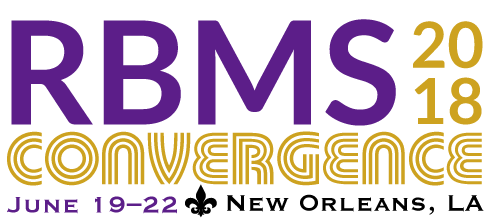Papers Panel: Collection Development Opportunity or Collections Management Burden? Evaluating the Operational Impact of Collections Stewardship
Sponsored by Conservation Center for Art & Historic Artifacts
As archives and special collections grow increasingly central to libraries’ operational, development, and strategic goals, an increased demand for acquiring rare and unique materials has gained a visibility and urgency not previously witnessed. Special collections, historically marginal to an institution’s identity, are now front and center.
On a parallel track, the librarians and archivists who manage these materials have made great strides in developing thoughtful, standardized, user-centered practices for preserving, processing, and providing access to the collections they care for in a responsible, ethical way. However, it seems at times that an institution’s commitment to effectively steward rare and unique materials lags behind the pace at which collections are desired and acquired, resulting in inaccessible backlogs and poorly described and preserved holdings. And as a recent OCLC report states, backlogs can also frustrate diversity and inclusion goals, “invit[ing] questions about how our collection management decisions can serve to further bury or to illuminate the histories of marginalized people.”
Four stakeholders in special collections management will discuss their experiences addressing the tension between collection development and collections stewardship. Perspectives will include that of a full-time collections manager, a professional who divides his time between collections management and curatorial responsibilities, a special collections department administrator with collections management experience, and a digitization services manager. Each panelist will present personal case studies to inform practical solutions they have developed to ensure that their parent institutions understand the true cost of stewardship. The hope is that these perspectives will build solidarity among collections managers, raise awareness about the resource implications (monetary and human) of stewardship, consider ethical concerns surrounding backlogs and poorly-described resources, and foster a constructive dialogue between those primarily tasked with acquiring materials and those responsible for their ongoing management.
